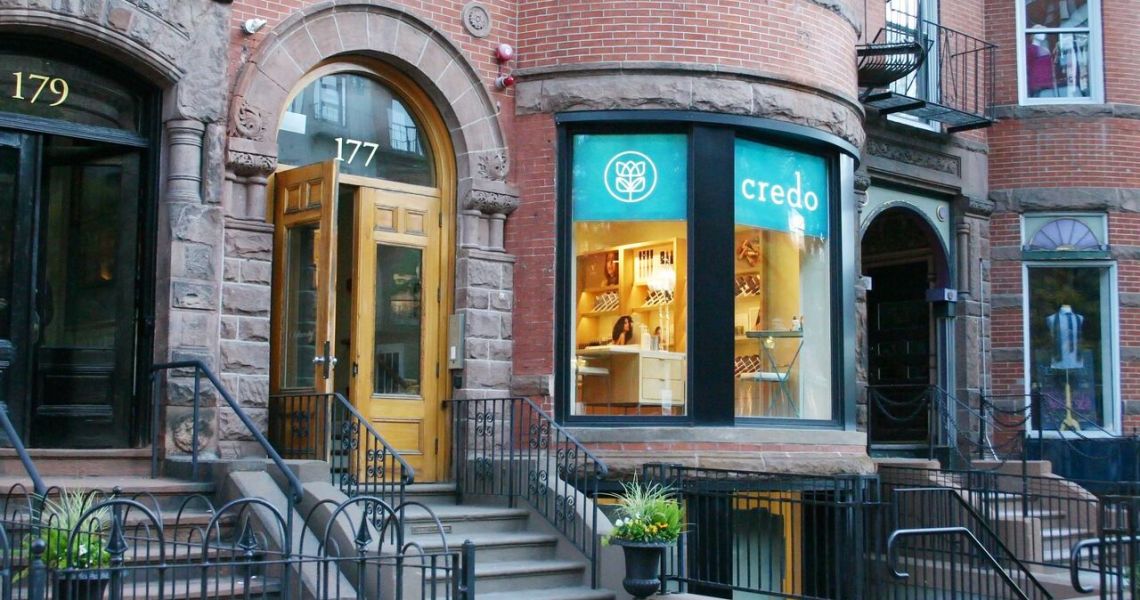As health and safety are top of mind for the consumer during the ongoing pandemic, the industry’s biggest retailers are leaning on the original pioneers of clean beauty.
On Tuesday, Ulta announced its partnership with clean retailer Credo, bringing eight of Credo’s curated brands into 100 Ulta Beauty stores and on Ulta.com this fall. Monica Arnaudo, chief merchandising officer at Ulta, and Annie Jackson, co-founder and chief operating officer at Credo, have announced three of the brands being featured thus far: EleVen by Venus Williams x Credo SPF, Innersense Organic Beauty and One Love Organics. More will be teased in the coming months. Meanwhile, Sephora announced its first in-store and online pop-up with Beautycounter on Tuesday, which will begin on July 7 online and in stores in August, lasting in both channels through October.
“As we continue our evolution in the clean beauty space, we have so much respect for Credo and what the’ve done when it comes to education and transparency in ingredients. They have so much credibility and, as the biggest beauty retailer [in the U.S.], this is the way [for both of us] to take the clean industry to the next level,” said Arnaudo.
Jackson added, “When we started Credo five years ago, we didn’t want clean beauty to be an exclusive or niche idea. That’s why we bet on physical stores and why we handpicked locations based on where we knew customers were intrigued.” Credo has nine stores in metropolitan cities including New York, San Francisco and Los Angeles, whereas Ulta has 1,264 locations.
Credo’s partnership will be displayed in highly visible endcaps in Ulta stores and on a dedicated Credo clean landing page, similar to Ulta’s Sparked experiment that began last year.
While Sephora led the clean movement among retailers beginning in May 2018, with Target following suit last July, Ulta has been more measured in its approach. Ulta’s “Wellness” merchandising assortment launched in May 2019 and took a “good-for-you” lens to brands and products, without delineating a banned ingredient list. Prior to Covid-19, Tula, which was hoping to be a pillar of Ulta’s clean assortment, gained a foothold in Ulta stores, and Follain, another clean beauty retailer, launched its private-label skin-care brand in Ulta stores in March. But coronavirus has accelerated Ulta’s play into clean.
“The safety of our communities and our guests are our top priority, but overall wellness and self-care are top of mind for our consumer, and what we see trending online and in stores,” said Arnaudo. Ulta’s skin-care, bath and fragrance category grew to 24% of revenue in the first quarter of 2020, according to its earnings report, compared to 21% last year. Cosmetics dipped to 49% versus 53% at the same time in 2019, as in-store behavior slowed and the overall cosmetics segment continues to trend downward.
Ad position: web_incontent_pos1
For now, Ulta’s and Credo’s co-curated brands all fall in the skin-care category, but Arnaudo said clean cosmetics, though more challenging, are “definitely on Ulta’s radar.”
“Credo has done an incredible job with its makeup brands, and our merchants have been working with brand and manufacturing partners to offer more options. It is our intention to bring the clean assortment to all of our core categories,” she said. Simple synergies already exist; for instance. E.l.f sells in Ulta and recently acquired clean makup brand W3ll People, which is sold in Credo.
Government regulation in beauty is still scarce, but clean makeup is expected to be more of a discussion point. Reuters found that since 2017 Chanel, Revlon and L’Oreal have been quietly eliminating talc in face products like loose powder, in tandem with increasing lawsuits and consumer concerns.
“There has been a long journey to education and transparency for customers,” said Jackson. “The customer is driving; clean is what they want and we are meeting them where they are.”




